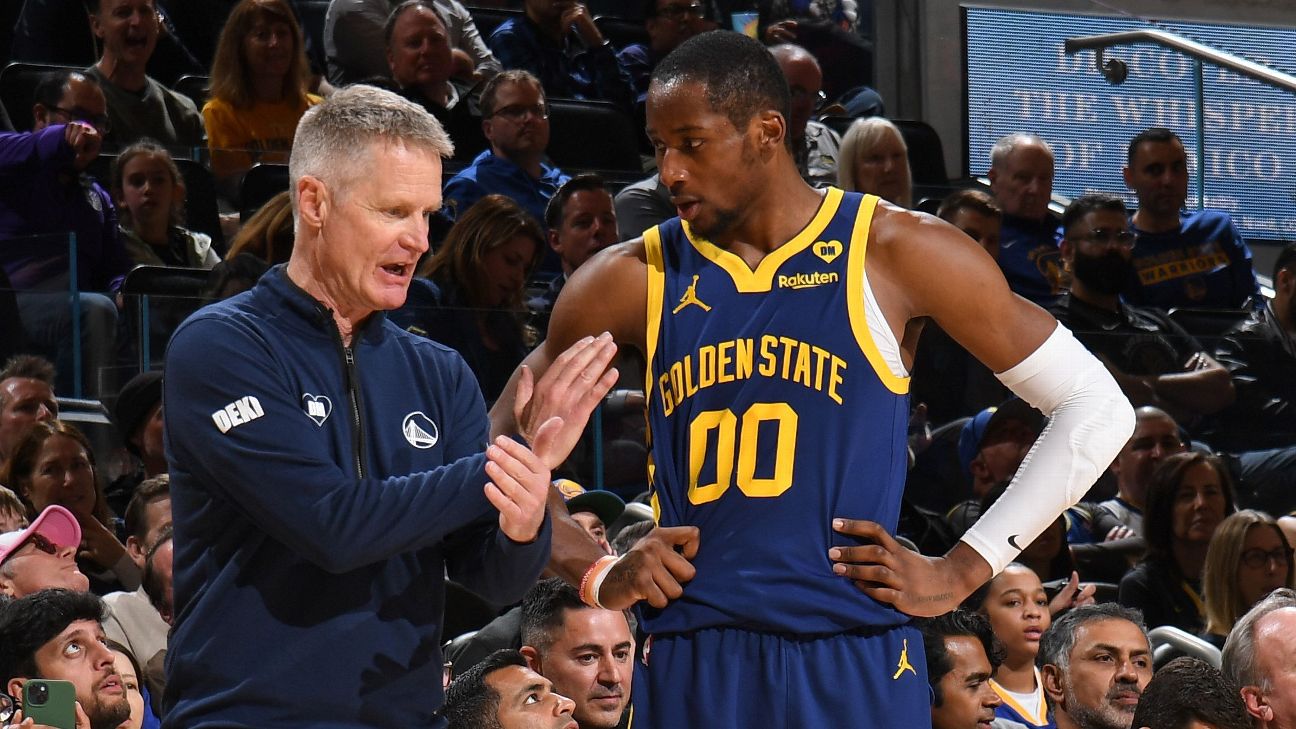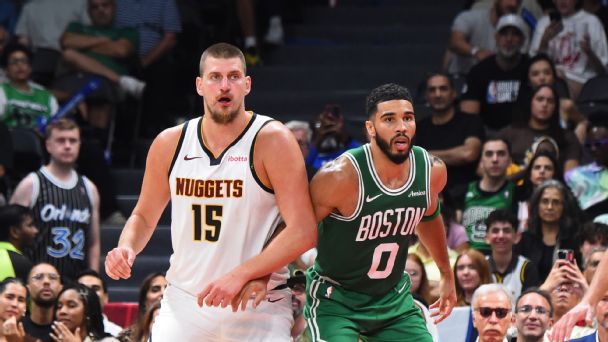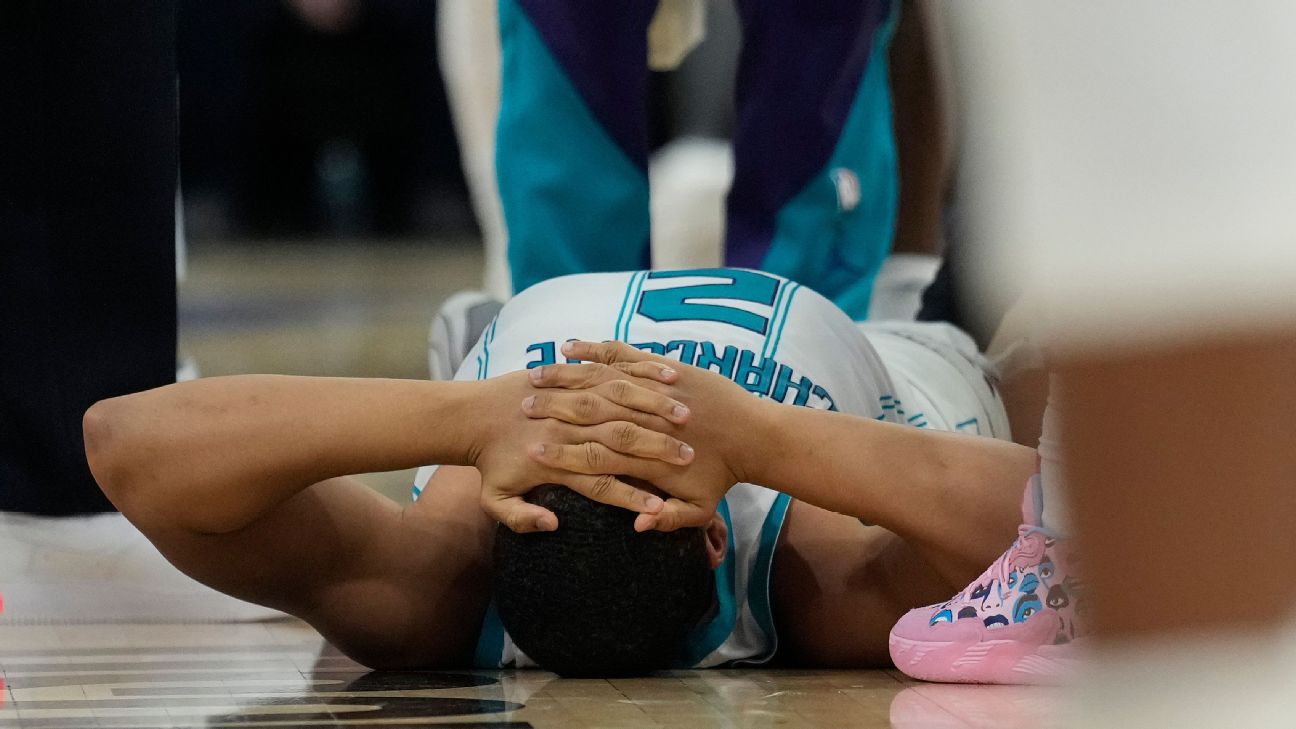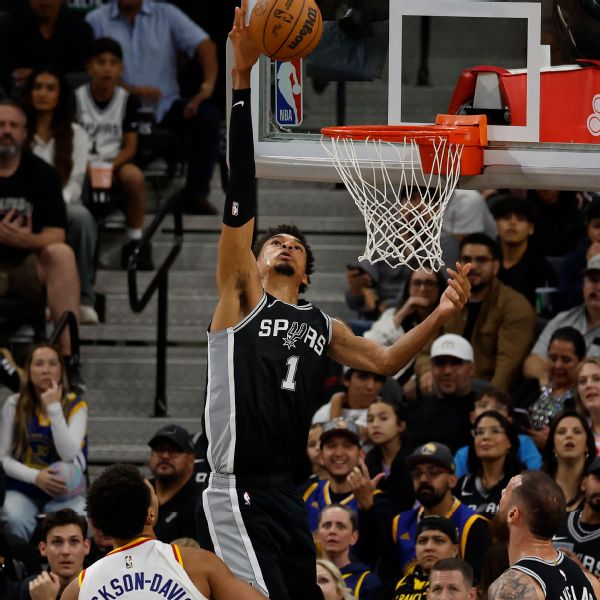NBA rookie extensions totaled more than $1 billion in salaries for a fifth straight offseason.
Teams and eligible players went into a predictable holding pattern after Evan Mobley, Cade Cunningham, Franz Wagner and Scottie Barnes each signed five-year, $224 million max extensions in July. But in the hours leading up to the 6 p.m. ET Monday deadline, seven players — Moses Moody, Trey Murphy III, Jalen Green, Jalen Suggs, Jalen Johnson, Alperen Sengun and Corey Kispert — signed extensions.
The most notable was Green, who became the first player to sign a three-year rookie extension for more than $30 million per season. The deal has a player option in the final season and a 10% trade bonus, while the Houston Rockets now have a tradable contract starting on July 1.
The players who didn’t sign extensions will enter a 2025 free agency market where the salary cap is projected to increase from $140.6 million to $154.6 million, but that 10% increase does not mean teams are flush with cap space. Only the Brooklyn Nets project to have more than $30 million to sign a restricted free agent to an offer sheet.
Under the new collective bargaining agreement, the restrictions on how high-spending teams add to their rosters will be joined by harsher financial penalties next offseason for teams that exceed the luxury tax in excess of $10 million. (A team that falls into the repeater tax category — four consecutive seasons or four out of five — will pay a significant penalty if it exceeds the tax threshold by just one dollar.)
Now that the deadline has passed, what is next for fourth-year players who didn’t get extensions and the handful of veterans who still might at some point this season?

Jonathan Kuminga, Golden State Warriors
We are going to learn a lot about Kuminga’s future over the next nine months.
First, we’ll see if Kuminga wisely bet on himself by turning down significant guaranteed money from Golden State. Despite his starting 46 games last season and averaging 17.2 points, there is no guarantee Kuminga regularly will be in the Warriors’ starting lineup. If he is, will coach Steve Kerr play him at small forward, a position at which Kuminga struggled in limited minutes last season?
Second, does Golden State view him as part of the future or as its most important trade asset prior to the Feb. 6 deadline? “There’s no point in going all-in to be slightly above average,” GM Mike Dunleavy Jr. said before the start of training camp.
Kuminga will be a restricted free agent next offseason, and barring something unprecedented, Golden State will tender him a $8 million qualifying offer prior to June 29. If he starts 36 games this season, the offer will increase to $10.2 million.
The Warriors will continue to have leverage when it comes to free agency. Not only will Kuminga become a restricted free agent, but because of the $30 million in expiring contracts of De’Anthony Melton, Gary Payton II and Kevon Looney, Golden State has the flexibility to match any offer sheet and still remain below the first and second aprons.
Josh Giddey, Chicago Bulls
Giddey has the opportunity this season to prove his next contract should be comparable to the $32.5 million average salary of Toronto Raptors guard Immanuel Quickley.
But how much leeway will Giddey have if his shooting struggles continue? In four preseason games with Chicago, he shot 31.7% from the field and 31.2% on 3-pointers.
“We’re here to win,” Bulls president of basketball operations Artūras Karnisovas said in the offseason. “Developing our players is crucial, but we won’t sacrifice the integrity of the game just for the sake of development.”
The Bulls have a crowded backcourt with Giddey, Coby White, Ayo Dosunmu, Jevon Carter and now a healthy Lonzo Ball. Giddey is two games away from reaching starter criteria and would then become eligible to receive a $11.1 million qualifying offer from Chicago in the offseason.
The Bulls have $134 million in salary next season but are over the cap because of the Giddey free agent hold. A new contract for Giddey would still allow Chicago the flexibility to sign a free agent to the $14 million non-tax mid-level exception.
Other players not extended: Jaden Springer (Boston), Day’Ron Sharpe (Brooklyn), Ziaire Williams (Brooklyn), Tre Mann (Charlotte), Chris Duarte (Chicago), Quentin Grimes (Dallas), Isaiah Jackson (Indiana), Bones Hyland (LA Clippers), Santi Aldama (Memphis) and Davion Mitchell (Toronto).

Veteran extension candidates
Nineteen players — including Stephen Curry, Jayson Tatum, Jalen Brunson, Donovan Mitchell and Bam Adebayo — combined to sign an unprecedented $2.6 billion in extensions in the offseason.
Four players who did not — Kevin Durant, De’Aaron Fox, Mikal Bridges and Jaren Jackson Jr. — are not eligible for an extension until the day after the NBA Finals because they have two years left on their contracts (including this season).
Here are some notable players who remain eligible to sign an extension until June 30.
Jimmy Butler, Miami Heat
Butler has been adamant that a lack of an extension will not be a distraction.
“I just want to play basketball and want to be available, like Pat [Riley] was talking about,” Butler said on media day. “I’m here. Normal hair. No shenanigans.”
Butler has $48.8 million owed to him this season and a $52.4 million player option next year. Because Oct. 21 has passed, the player option for next season would need to be declined for Butler to remain extension eligible. Butler would then be allowed to sign a two-year extension for as much as $112.9 million.
Rudy Gobert, Minnesota Timberwolves
Gobert has a $46.7 million player option for the 2025-26 season and is eligible to sign a four-year, $242 million extension. The max extension is not going to happen, and the goal should be for Gobert to secure guaranteed money in the future but with the trade-off of taking less money than his player option.
“We’ve had some nice discussions with Rudy, certainly we want him to be here as long as he wants to be here, and we hope he ends his career here,” Timberwolves president of basketball operations Tim Connelly said in the offseason.
A Gobert extension starting at $38 million, coupled with the Karl-Anthony Towns trade, would give Minnesota additional financial flexibility next season to retain Julius Randle and Naz Reid. Both could become free agents if they decline their player options.
Brandon Ingram, New Orleans Pelicans
The future of Ingram continues to be a storyline to watch this season. He has been eligible to sign a four-year, $208 million extension since July, but the sides remain at an impasse.
“There’s a difference between getting something done and having the opportunity to make it all work, and we haven’t yet,” Pelicans executive vice president of basketball operations David Griffin said before the start of the preseason. “If we get to a point where it’s the right time and the right fit, we can. Unfortunately, we just haven’t been in a situation where the parties have met in the middle.”
The addition of Dejounte Murray and a new contract for Trey Murphy III have New Orleans $31 million below the luxury tax next season. New Orleans has never paid the luxury tax in franchise history.
“Until we feel like we’re ready to take a quantum leap forward,” Griffin said, “it’s hard to feel good about doing that.”
June 30 deadline: Clint Capela, Garrison Mathews, Larry Nance Jr., Bojan Bogdanovic (as of Oct. 30), Al Horford, Ben Simmons, Lonzo Ball, Sam Merrill, Tim Hardaway Jr., Gary Payton II, Kevon Looney, Jae’Sean Tate, Steven Adams, P.J. Tucker, Amir Coffey, Bobby Portis, Pat Connaughton, Julius Randle, Josh Minott, Alex Caruso, Jaylin Williams, Caleb Houstan, Jabari Walker, Chris Boucher, John Collins, Malcolm Brogdon and Marvin Bagley III.



